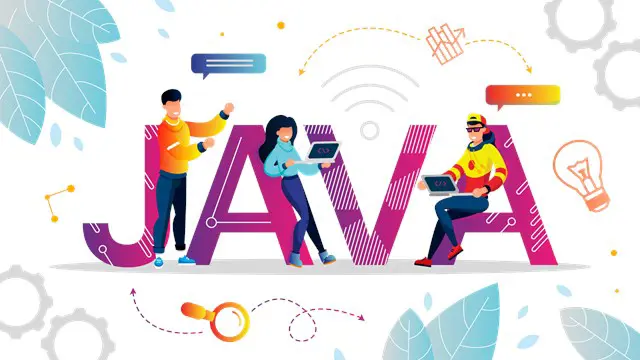
Java Programming for Complete Beginners
Gain competencies in all aspects of Java from scratch
Learnkart Technology Pvt. Ltd.
Summary
- Reed Courses Certificate of Completion - Free
Add to basket or enquire
Overview
What will you learn in Java Programming?
- Learn the core Java skills needed to start your career as a Java developer
- Learn all the Java concepts from basic
- Create multiple short projects along the way to gain confidence
- Learn how to debug Java program
- Learn how to use JUnit to test
- Learn how to use Design pattern practices
- Learn industry “best practices” in Java software development from a professional Java developer who has worked in the language for 15+ years.
Certificates
Reed Courses Certificate of Completion
Digital certificate - Included
Will be downloadable when all lectures have been completed.
Curriculum
Course media
Description
Why would you choose to learn Java?
There are hundreds of programming languages so why would you choose Java language?
The main reason is its popularity and usage in the Industry. According to many official websites that track the popularity of languages, Java is either #1 or in the top 3. So, that means more companies and their staff are using it, so there are more career opportunities available for you if you are skilled in the language.
As of now, in 2021 the version of Java that offers long-term support (LTS) from Oracle is Java 11 which will be fully support until at least 2025 and likely will be extended from there. And you guessed it right, we are going to learn Java 11 in this course.
This course is prepare by SMEs who have more than 15 years of experience in Java.
Here’s just some of what you’ll learn:
- All OOPS concepts – What is polymorphism and inheritance and to apply them to your application
- All the essential Java keywords, operators, statements, loops, and expressions
- How to download and install all necessary coding tools required
- How to perform code refactoring
- How to use different packages available
- Concepts and usage of multithreading
- How to analyze logs
Java debugging techniques – Stack trace, breakpoints - How to use JUnit framework
- Implement Java design patterns
And much more…
Who is this course for?
- College Freshers
- Software Developers
- Programming Enthusiasts
- Ideal for absolute beginners with no previous coding experience, to intermediates looking to sharpen their skills
- Those looking to start/switch their career to Java
- Those looking to build a career in Big Data as Java is used in a lot of technologies
Requirements
This course does NOT need any pre-requisite. You just need to have a laptop. We will hand-hold with step-by-step details so that you can get start with Java immediately.
Questions and answers
Currently there are no Q&As for this course. Be the first to ask a question.
Reviews
Currently there are no reviews for this course. Be the first to leave a review.
Legal information
This course is advertised on reed.co.uk by the Course Provider, whose terms and conditions apply. Purchases are made directly from the Course Provider, and as such, content and materials are supplied by the Course Provider directly. Reed is acting as agent and not reseller in relation to this course. Reed's only responsibility is to facilitate your payment for the course. It is your responsibility to review and agree to the Course Provider's terms and conditions and satisfy yourself as to the suitability of the course you intend to purchase. Reed will not have any responsibility for the content of the course and/or associated materials.


